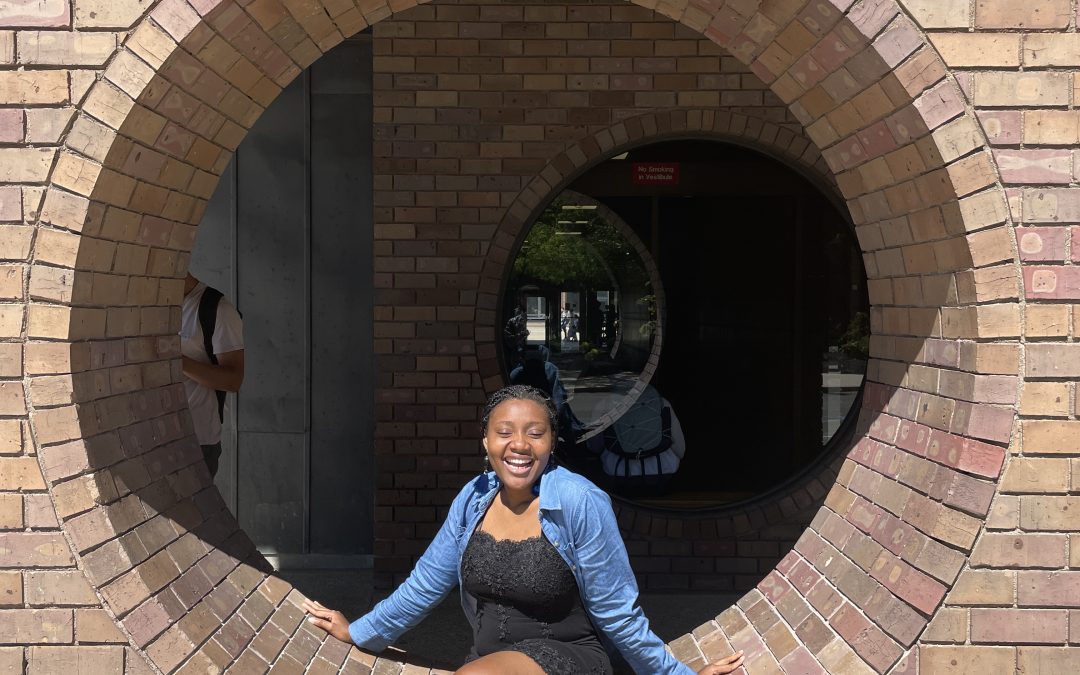My academic journey is one that is non-linear. I had my undergraduate degree in French, first masters in Liberal Studies where I majored in gender studies, and my second master’s in Sociology. Now, I am undergoing my Doctoral degree in Sociology. I have hovered from the humanities to the social sciences. These switches make me grounded in Liberals Arts as opposed to referring to myself as a social scientist as it is expected of a sociologist.
When I began my Ph.D. in sociology, the truth is that I felt like a novice despite my master’s degree in Sociology. Moreover, my master’s degree was in applied Sociology while for my Ph.D. I will say is more of a Pure Sociology. Applied Sociology makes students see themselves at the intersection of problem-solving, solutions, and skill acquisition especially relevant soft skills. Whereas, my Sociology Ph.D. which is Pure Sociology is more about knowledge acquisition. It is in-depth in the need to understand theories and the art of meaning-making. In Pure Sociology, the goal is to find the problems and talk about them, as opposed to solving the problem. I remember one of my professors mentioned in class that the goal of sociological research is not to provide solutions. Similarly, in the class, when we have discussed the social issues and we get perplexed with the situations and everyone begins to ask, “So what can be done to change the situation?” I hear my professor mention that we are not activists but researchers. In these instances, I often ask myself, how do we then leave the world better than we met it?
After many of my classes, I end up asking myself, “ain’t there sociologists in public offices?” This is because I am assuming that if we have individuals that have in-depth knowledge about the issues that impede individuals and society, we can have policies that will solve people’s problems. I also ask myself that “Do we as sociological researchers just publish papers that do not get read by the public and policymakers?” If our class discussions, research, and suggestions get public, I believe there is more solution that the world will benefit from. However, I am not also oblivious to the fact that the society we run is a market economy that prevents us from efficiently serving the need of people.
Even though meaning-making is an essential critical thinking tool, which is one thing I love about being in a Pure Sociology program, I still find it a little bit tense. For instance, my department recently had an award ceremony and there was an award called the ‘good citizen’ award. On my way home with one of my friends who happens to also be my classmate, I mentioned to her that I love the award because it appreciates the efforts of individuals who attend departmental events. She concurred with the relevance of the award but added that the phrase good citizen is political and sociologist should not be found using such a phrase. Hmmm . . . I began wondering what was wrong with the phrase. On second thought, yes, I will agree that the phrase is political. That means, there could possibly be the good citizen and bad citizens or the insider and outsider. As such, the politics of othering which the people in power use to decide who is deserving comes to play. Whereas, in Sociology everyone is deserving. The goal of sociology, in my opinion, is to address the problems of society and challenge oppressive structures, of which the constructs of power such as hierarchy and hegemony are part. At the time my friend pointed this departmental oversight out, I laughed and I said, “Oh sociologist! A reason why I am not a full sociologist.” I know we should make meaning of things, but I think that it could be overdone.
I love sociology but I still call myself a learner in the field. Therefore, as I continue to develop my knowledge and critical thinking skill in sociology, I think that I would love that everyone becomes a student of Sociology either consciously or unconsciously. This would be vital to the appointment of humanity oriented leaders and building of humane populace. Also, I will appreciate the blend of Applied and Pure Sociology in Sociology programs. I believe that our goal should not only be the training of minds but also the instrumentality of the knowledge to the public.


Recent Comments